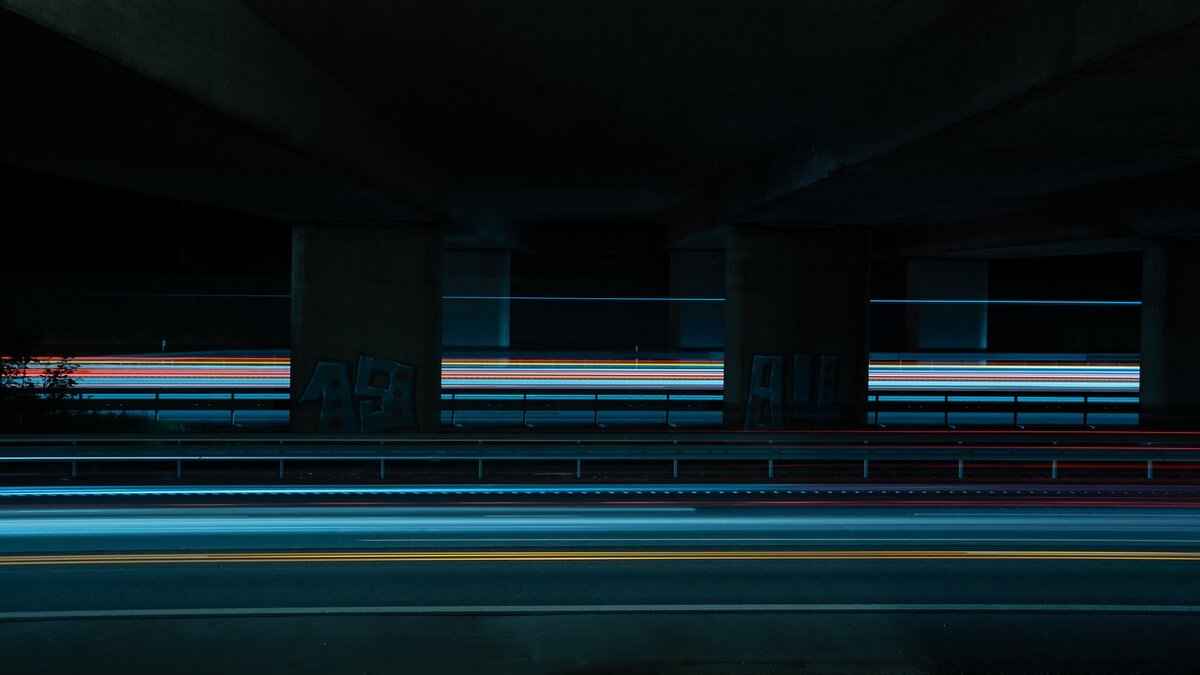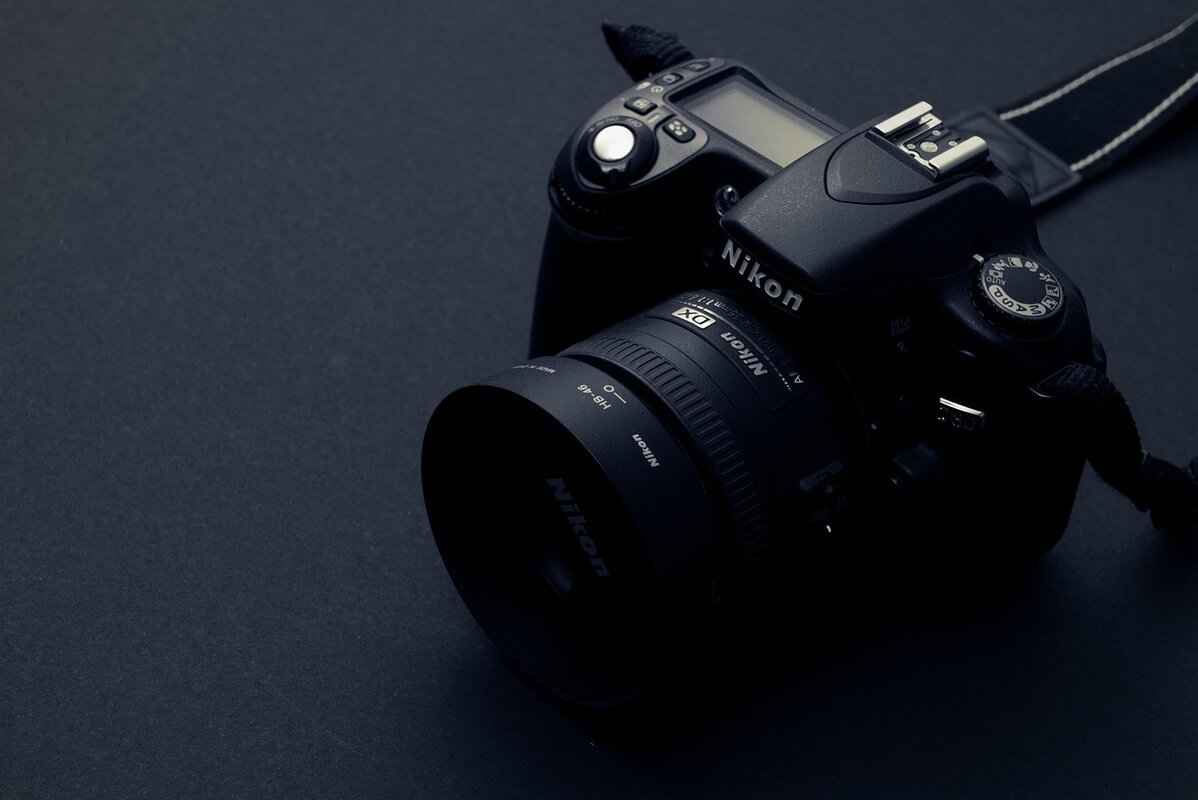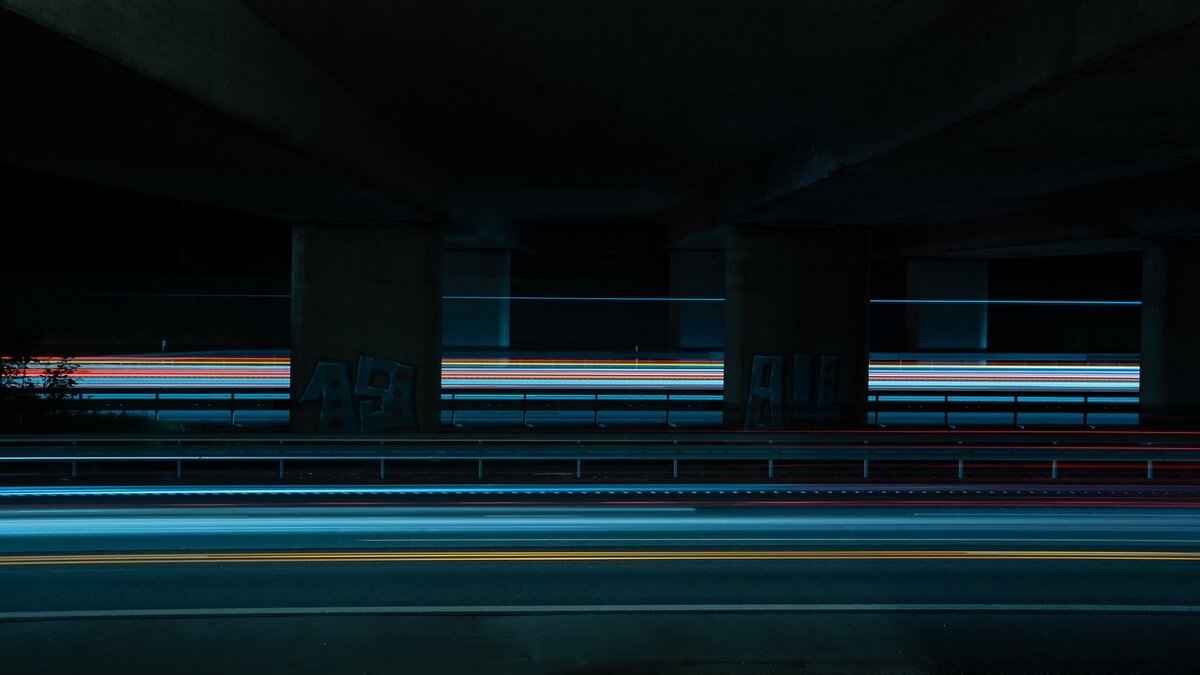This article explores the revolutionary integration of LiDAR technology in action cameras, discussing its implications for photography, videography, and various industries. Discover how this advancement could transform user experiences.
What is LiDAR Technology?
LiDAR, or Light Detection and Ranging, is a remote sensing method that utilizes light in the form of a pulsed laser to measure distances. This technology has been primarily used in fields like geography, forestry, and autonomous vehicles. Understanding its principles is essential for appreciating its applications in action cameras, where precision and detail are paramount.
How Does LiDAR Enhance Action Cameras?
Integrating LiDAR into action cameras offers significant improvements in depth perception and spatial awareness. This allows users to capture more dynamic and immersive shots, particularly in challenging environments. For instance, when filming in dense forests or urban landscapes, LiDAR can help in identifying obstacles and enhancing the overall composition of the shot.
What Are the Key Benefits of LiDAR in Photography?
- Accurate Distance Measurements: LiDAR provides precise distance data, improving focus and detail in images.
- Enhanced Depth of Field: Photographers can achieve a more pronounced depth of field, making their subjects stand out.
- Real-Time Feedback: Users receive immediate feedback on composition and focus, allowing for quicker adjustments.
How Does LiDAR Improve Video Quality?
LiDAR can significantly enhance video quality by enabling better stabilization and depth mapping. This leads to smoother footage, even in fast-paced scenarios. The technology allows for more engaging and professional-looking videos, making it easier for content creators to produce high-quality material without extensive post-production work.
Who Can Benefit from LiDAR-Equipped Action Cameras?
Various industries can benefit from LiDAR-equipped action cameras, including:
- Sports: Athletes can analyze performance metrics with precision.
- Real Estate: Agents can create immersive property tours.
- Environmental Monitoring: Researchers can gather accurate data on ecosystems and topography.
Are There Any Limitations to LiDAR Technology in Cameras?
While LiDAR technology offers many advantages, it also has limitations, such as:
- Cost: LiDAR systems can be expensive, potentially limiting accessibility for casual users.
- Complexity: The technology requires a certain level of expertise to operate effectively.
How Does LiDAR Compare to Traditional Camera Technology?
Comparing LiDAR with traditional camera technologies reveals key differences. While traditional cameras rely on optics and sensors, LiDAR provides a more comprehensive understanding of the environment. This can result in superior image quality and functionality in various scenarios, especially in low-light or complex settings.
What Are the Future Trends in Action Camera Technology?
The integration of LiDAR is just one of many trends shaping the future of action cameras. Other emerging technologies include:
- AI Integration: Enhancing user experience through intelligent features.
- Improved Battery Life: Allowing for longer shoots without interruptions.
- Enhanced Connectivity: Seamless sharing and editing capabilities via mobile apps.
How Can Users Maximize the Benefits of LiDAR in Action Cameras?
To fully leverage LiDAR technology, users should:
- Understand the camera’s features and capabilities.
- Experiment with different shooting environments to see how LiDAR enhances their work.
- Engage with online communities to share tips and learn from others’ experiences.
What Are the Best LiDAR-Equipped Action Cameras on the Market?
Several manufacturers are developing action cameras with LiDAR capabilities. Notable options include:
- Camera Model A: Known for its robust build and exceptional video quality.
- Camera Model B: Offers advanced features and user-friendly interface.
How Does LiDAR Technology Impact User Experience?
LiDAR technology can significantly enhance user experience by providing intuitive and immersive features. Users can expect a more interactive shooting experience, leading to greater creativity and satisfaction in their photography and videography endeavors.
What Should Consumers Consider Before Purchasing a LiDAR Action Camera?
Before investing in a LiDAR-equipped action camera, consumers should consider:
- Budget: Determine how much you are willing to spend.
- Intended Use: Identify what you plan to use the camera for.
- Technical Requirements: Ensure your computer and software can handle the camera’s output.

What is LiDAR Technology?
LiDAR, which stands for Light Detection and Ranging, is an advanced remote sensing technology that employs pulsed laser light to measure distances with remarkable accuracy. This technique involves emitting laser pulses towards a target and measuring the time it takes for the light to return after bouncing off the surface. By calculating the time delay, LiDAR systems can determine precise distances, creating detailed three-dimensional maps of the environment.
Understanding the principles of LiDAR is crucial for appreciating its diverse applications, especially in the realm of action cameras. These devices, traditionally focused on capturing high-quality images and videos, can significantly benefit from the enhanced depth perception and spatial awareness that LiDAR technology provides.
LiDAR operates by emitting thousands of laser pulses per second, which can penetrate various surfaces, including vegetation and even some water bodies. This capability allows for the generation of accurate topographical maps, making it invaluable in fields such as geospatial analysis, urban planning, and environmental monitoring. The data collected can be used to create detailed 3D models, which are essential for various applications, from construction to forestry management.
In the context of action cameras, the integration of LiDAR technology can revolutionize how users capture their adventures. With improved depth mapping, users can expect enhanced focus and clarity in their images and videos, particularly in complex environments where traditional cameras might struggle. This advancement not only elevates the quality of visual content but also opens up new creative possibilities for photographers and videographers alike.
Moreover, the ability to accurately measure distances allows for better stabilization during video recording, resulting in smoother footage even during high-motion activities. This feature is particularly beneficial for sports enthusiasts and content creators who demand high-quality visuals in dynamic settings.
As the technology continues to evolve, the potential for LiDAR in action cameras seems limitless. From improving user experience to providing professionals with tools that enhance their work, the integration of this technology is set to change the landscape of photography and videography significantly.
In summary, LiDAR technology is a powerful tool that not only enhances the capabilities of action cameras but also broadens their application across various industries. Understanding how LiDAR works and its implications can help users fully leverage its potential, ensuring that they capture stunning visuals with unprecedented accuracy and detail.

How Does LiDAR Enhance Action Cameras?
Integrating LiDAR technology into action cameras represents a significant leap forward in capturing high-quality images and videos. This innovation not only enhances depth perception but also improves spatial awareness, allowing users to create more dynamic and immersive shots. By utilizing pulsed laser light, LiDAR measures distances with remarkable precision, which can transform how action cameras operate.
One of the primary benefits of LiDAR in action cameras is its ability to provide real-time depth mapping. This feature enables users to gauge the distance between objects and the camera, which is crucial for achieving accurate focus and stunning detail in images. Unlike traditional autofocus systems that rely on contrast detection, LiDAR employs active measurement, resulting in quicker and more reliable focusing capabilities.
Moreover, the integration of LiDAR allows for enhanced 3D mapping of environments. This capability means that users can capture scenes with a greater sense of depth, making photographs and videos feel more three-dimensional and lifelike. For instance, when filming in complex environments, such as forests or urban landscapes, LiDAR can distinguish between foreground and background elements, ensuring that the subject remains sharp and well-defined.
LiDAR technology also plays a crucial role in improving video quality. By providing depth information, it aids in stabilizing footage more effectively than conventional methods. This is especially beneficial for action sports enthusiasts who often shoot while in motion. The enhanced stabilization results in smoother videos, reducing the shakiness that can detract from the viewing experience.
Additionally, LiDAR can assist in low-light conditions. With its ability to measure distances accurately, it can enhance the camera’s performance in challenging lighting situations by ensuring that the camera focuses correctly on the intended subject, even when ambient light is limited.
Another advantage of LiDAR in action cameras is its potential for augmented reality (AR) applications. As the technology evolves, we may see features that allow users to overlay digital information onto their real-world environments, enriching the storytelling aspect of their footage. This could be particularly appealing for content creators looking to engage their audience in innovative ways.
Furthermore, the use of LiDAR can extend beyond recreational photography and videography. Various industries, including real estate and environmental monitoring, can leverage LiDAR-equipped action cameras for detailed mapping and analysis. For example, real estate agents can use these cameras to create virtual tours that accurately represent property dimensions and layouts.
In conclusion, the integration of LiDAR technology into action cameras offers a multitude of transformative benefits. From enhancing depth perception and spatial awareness to improving video quality and enabling new creative possibilities, LiDAR is set to change the landscape of action photography and videography. As users become more familiar with these capabilities, the potential for innovative applications will only continue to grow.

What Are the Key Benefits of LiDAR in Photography?
LiDAR technology is revolutionizing the field of photography by introducing a level of precision and detail that was previously unattainable. As photographers seek to enhance their work, understanding the key benefits of LiDAR in photography becomes essential. This section delves into the specific advantages that LiDAR-equipped cameras offer, transforming how images are captured and perceived.
One of the most significant benefits of LiDAR technology is its ability to provide accurate depth measurements. By emitting laser pulses and measuring the time it takes for them to return, LiDAR systems can create a detailed 3D map of the environment. This allows photographers to achieve improved depth perception in their images, resulting in more dynamic compositions that draw the viewer in.
LiDAR technology enhances the focusing capabilities of cameras by enabling precise distance calculations. This means that photographers can achieve sharper focus on their subjects, even in challenging lighting conditions. The increased detail captured in images is particularly beneficial for macro photography, where every minute detail matters.
In low-light environments, traditional autofocus systems can struggle, leading to blurry images. However, LiDAR technology can significantly improve performance in these situations. By accurately measuring distances, LiDAR-equipped cameras can lock focus more effectively, allowing photographers to capture stunning images even in dimly lit settings.
LiDAR’s ability to create real-time maps of the environment opens up new creative possibilities for photographers. This technology allows for dynamic framing and composition adjustments on the fly, enabling photographers to visualize their shots in ways that were not possible before. Such capabilities are particularly useful in fields like landscape and architectural photography, where spatial awareness is crucial.
Another advantage of LiDAR in photography is the enhanced capabilities it provides during post-processing. Photographers can utilize the depth data captured by LiDAR to create stunning effects, such as selective focus or advanced depth-of-field adjustments. This flexibility allows for greater creative expression and the ability to craft images that stand out.
LiDAR technology is not limited to a single genre; its benefits span across various types of photography. From wildlife and sports photography to real estate and urban exploration, the precision and detail offered by LiDAR can enhance the quality of images captured in diverse environments. Photographers can leverage these advantages to cater to specific client needs or personal projects.
In summary, the integration of LiDAR technology into photography represents a significant leap forward in capturing images with unparalleled clarity and depth. From enhanced focus and detail to improved performance in low-light conditions, the benefits are numerous. As more photographers adopt LiDAR-equipped cameras, the potential for innovation in the field of photography continues to grow, paving the way for new artistic possibilities.

How Does LiDAR Improve Video Quality?
LiDAR technology is making waves in various fields, particularly in the realm of video production. One of its most remarkable contributions is in the area of video quality enhancement. This section explores how LiDAR can significantly improve video quality through advanced stabilization and depth mapping, ultimately leading to more engaging and professional-looking videos.
Video stabilization is a crucial aspect of videography that minimizes unwanted camera movements, resulting in smoother footage. Traditional stabilization methods often rely on software algorithms that can sometimes distort the image quality. However, with LiDAR, stabilization becomes more precise. By accurately measuring distances in real-time, LiDAR allows for better compensation of camera shake, ensuring that the final video appears fluid and professional.
Depth mapping is the process of creating a three-dimensional representation of a scene. This is essential for various applications, including augmented reality and visual effects. LiDAR enhances depth mapping by providing accurate distance measurements, which helps in creating a more realistic and immersive viewing experience. With precise depth data, videographers can achieve effects that were previously challenging, such as focus pulls and 3D depth perception.
Incorporating LiDAR technology allows filmmakers to add sophisticated visual effects seamlessly. For instance, when integrating CGI elements into live-action footage, having accurate depth information ensures that these elements interact naturally with the real-world environment. This capability not only enhances the visual appeal but also elevates the storytelling aspect of videos.
LiDAR’s ability to measure distances accurately also shines in low-light conditions. By providing better spatial awareness, it helps cameras adjust exposure settings more effectively, resulting in clearer and more vibrant videos even in challenging lighting situations. This feature is particularly beneficial for action cameras used in various environments, from night-time adventures to dimly lit indoor settings.
- Sports Broadcasting: LiDAR-equipped cameras can capture high-speed action with remarkable clarity and stability, making them ideal for sports events.
- Documentary Filmmaking: The technology allows filmmakers to create immersive narratives by accurately capturing the essence of their subjects and environments.
- Real Estate Videography: LiDAR enhances property tours by providing detailed spatial information, making it easier for potential buyers to visualize spaces.
In summary, the integration of LiDAR technology into video production represents a significant leap forward in video quality enhancement. By enabling better stabilization, depth mapping, and improved low-light performance, LiDAR-equipped cameras produce videos that are not only visually stunning but also more engaging for viewers. As this technology continues to evolve, its impact on videography will undoubtedly grow, transforming the way stories are told through the lens.

Who Can Benefit from LiDAR-Equipped Action Cameras?
The integration of LiDAR technology into action cameras is not just a technological advancement; it represents a paradigm shift across various industries. The ability to capture precise distance measurements and create detailed 3D maps opens up a world of possibilities. In this section, we delve into the specific industries that stand to gain from this innovation and explore the potential impact on professionals operating in these fields.
In the realm of sports, LiDAR-equipped action cameras can enhance training and performance analysis. Coaches and athletes can utilize the technology to capture accurate data on player movements, enabling them to analyze performance metrics in real-time. For example, runners can monitor their stride length and speed, while team sports can benefit from tracking player positions during games. This data-driven approach can lead to improved strategies and better outcomes on the field.
The real estate industry can also see substantial benefits from LiDAR-equipped action cameras. Real estate agents can create immersive property tours that provide potential buyers with a true sense of space. By capturing 3D models of properties, agents can showcase listings in a more engaging manner. Furthermore, LiDAR technology can assist in land surveying, providing accurate measurements for property boundaries and terrain analysis, which is crucial for developers and investors.
In the field of environmental monitoring, LiDAR-equipped action cameras can play a vital role in data collection and analysis. Researchers can use these cameras to monitor changes in ecosystems, track wildlife movements, and assess the impact of climate change. The ability to create detailed topographical maps can aid in conservation efforts, allowing scientists to identify areas that require protection or restoration.
Adventure and travel enthusiasts are not left out in this technological revolution. LiDAR-equipped action cameras allow them to document their journeys with unprecedented accuracy. Whether hiking, biking, or climbing, users can capture detailed landscapes and create stunning visual narratives. The depth perception provided by LiDAR enhances the storytelling aspect of travel photography, making it more immersive for viewers.
- Construction: LiDAR can streamline project planning and monitoring by providing precise measurements of construction sites.
- Agriculture: Farmers can use LiDAR to assess crop health and optimize irrigation practices, leading to improved yields.
- Film and Entertainment: Filmmakers can capture dynamic scenes with enhanced depth, providing audiences with more engaging content.
As we can see, the potential applications of LiDAR-equipped action cameras span across numerous fields, each with its unique advantages. The ability to gather accurate spatial data not only enhances professional practices but also enriches user experiences in various ways. As this technology continues to evolve, we can expect to see even more innovative uses that will further transform industries.

Are There Any Limitations to LiDAR Technology in Cameras?
LiDAR technology has emerged as a groundbreaking tool in various fields, including photography and videography, particularly through its integration into action cameras. However, as with any technological advancement, it comes with its own set of limitations. This section delves into the challenges that manufacturers and users may encounter when adopting LiDAR technology in cameras.
While LiDAR offers remarkable benefits, the cost associated with its implementation is a significant barrier. The sophisticated sensors and systems required for LiDAR can lead to higher retail prices for action cameras. This can deter potential buyers, especially hobbyists or casual users who may not see the immediate value in such an investment.
Another challenge lies in the complexity of integrating LiDAR technology into existing camera systems. Manufacturers must navigate intricate engineering hurdles to ensure that the LiDAR sensors work seamlessly with the camera’s other features. This complexity can lead to longer development times and increased costs, which may ultimately affect the price point for consumers.
For users, there is often a learning curve associated with utilizing LiDAR technology effectively. While the benefits are substantial, users must familiarize themselves with new functionalities and settings to maximize the potential of their LiDAR-equipped cameras. This can be daunting for those who are not tech-savvy or who prefer straightforward photography.
Additionally, LiDAR technology can face challenges in certain environmental conditions. For example, heavy rain, fog, or snow can interfere with the laser signals, leading to inaccurate readings or diminished performance. Users must be aware of these limitations to avoid disappointment in adverse weather conditions.
The amount of data generated by LiDAR sensors is substantial, necessitating advanced data processing capabilities. Users may need to invest in powerful hardware or software solutions to handle and analyze the data effectively. This requirement can add another layer of cost and complexity for both manufacturers and consumers.
As LiDAR technology is still relatively new in the action camera market, availability of such cameras may be limited. Not all manufacturers have embraced this technology, resulting in fewer options for consumers. Additionally, support and resources for troubleshooting and optimization may not be as readily available compared to traditional cameras.
Lastly, there is a concern regarding over-reliance on technology. Users may become dependent on LiDAR for depth perception and spatial awareness, potentially diminishing their traditional photography skills. Striking a balance between utilizing advanced technology and honing fundamental skills is essential for photographers and videographers.
In summary, while LiDAR technology presents exciting possibilities for action cameras, it is essential to recognize and address its limitations. From cost and complexity to environmental factors and data processing needs, these challenges can significantly influence the adoption and effectiveness of LiDAR in photography and videography.

How Does LiDAR Compare to Traditional Camera Technology?
When exploring the advancements in imaging technology, understanding how LiDAR compares to traditional camera technology is crucial. LiDAR, or Light Detection and Ranging, has emerged as a powerful tool that enhances the capabilities of action cameras, offering distinct advantages over conventional methods. This section delves into the key differences between these technologies, highlighting scenarios where LiDAR excels.
LiDAR technology utilizes laser pulses to measure distances with remarkable precision. This method contrasts sharply with traditional cameras that rely on optical sensors and image processing algorithms to capture images. One of the primary advantages of LiDAR is its ability to create detailed 3D maps of environments, which is particularly beneficial in complex scenes where depth perception is critical.
In terms of accuracy, LiDAR outperforms traditional cameras significantly. While conventional cameras may struggle with focus in challenging lighting conditions or complex backgrounds, LiDAR provides precise distance measurements that enhance the clarity and detail of images. This is especially advantageous for photographers and videographers aiming to capture intricate details in their work.
LiDAR’s capability to measure depth accurately allows for improved spatial awareness in both photography and videography. Traditional cameras often rely on autofocus systems that can misinterpret distances, leading to blurred images. In contrast, LiDAR-equipped cameras can maintain sharp focus on subjects, regardless of their distance from the camera, making them ideal for action shots and dynamic environments.
LiDAR technology shines in various applications where traditional cameras may fall short. For instance, in real estate, LiDAR can create accurate floor plans and 3D models of properties, offering potential buyers a comprehensive view of the space. Similarly, in sports, athletes can benefit from the precise tracking of movements, allowing for enhanced performance analysis and coaching.
While traditional cameras have their merits, they come with limitations that can hinder performance. Factors such as low light conditions, fast-moving subjects, and complex scenes can lead to inaccurate focus and poor image quality. In scenarios where precision is paramount, LiDAR technology proves to be a more reliable choice.
Despite its numerous advantages, the integration of LiDAR technology often comes at a higher cost compared to traditional camera systems. Potential buyers should weigh the benefits of enhanced accuracy and detail against the investment required. For professionals in fields like architecture or environmental monitoring, the investment in LiDAR may be justified by the significant improvements in output quality.
The ongoing evolution of imaging technology suggests that LiDAR will become increasingly prevalent in consumer cameras. As manufacturers continue to innovate, we can expect to see more affordable LiDAR options that cater to a broader audience. This shift could democratize access to high-quality imaging capabilities, making advanced photography more accessible to enthusiasts and professionals alike.
In summary, the comparison between LiDAR technology and traditional cameras reveals significant differences in accuracy, detail, and application. While LiDAR may come with a higher price tag, its advantages in various fields make it a compelling choice for those seeking to elevate their imaging capabilities.

What Are the Future Trends in Action Camera Technology?
The landscape of action cameras is rapidly evolving, driven by technological advancements and changing consumer demands. As we venture into the future, several key trends are emerging that promise to redefine the capabilities and functionalities of these devices. One of the most significant trends is the integration of LiDAR technology, which is set to revolutionize how users capture and interact with their environments.
As technology continues to advance, action cameras are becoming more sophisticated. Here are some of the most notable trends that are shaping the future:
- Enhanced Connectivity: Future action cameras will likely feature improved connectivity options, including Wi-Fi and Bluetooth, allowing for seamless sharing and streaming of content. This will enable users to upload their adventures in real-time, enhancing social interaction.
- AI Integration: The incorporation of artificial intelligence will enable action cameras to automatically adjust settings based on the shooting environment. This could lead to better image quality and user experience, as cameras learn from user habits and preferences.
- Advanced Stabilization Technologies: With the rise of vlogging and extreme sports, the demand for superior stabilization features is growing. Future models may incorporate advanced algorithms and mechanical stabilization to ensure smooth footage, even in the most challenging conditions.
- Modular Designs: Customizability is becoming a priority for many users. Action cameras of the future may adopt modular designs, allowing users to attach various accessories and enhancements, such as additional lenses or battery packs, to suit their specific needs.
- LiDAR Integration: As discussed, the integration of LiDAR technology will enhance depth perception and spatial awareness, allowing users to capture more immersive and detailed shots. This technology could also facilitate features such as 3D mapping and augmented reality experiences.
How Will These Trends Impact User Experience?
The evolution of these technologies will significantly impact how users interact with their action cameras. Enhanced connectivity will foster a more connected community, enabling users to share their experiences instantly. AI integration will simplify the shooting process, making it accessible for both amateurs and professionals. Advanced stabilization will ensure that even the most dynamic activities are captured smoothly, enhancing the storytelling aspect of video content.
What Challenges Lie Ahead?
Despite the promising trends, challenges remain. The integration of advanced technologies often comes with increased costs, potentially making these devices less accessible to average consumers. Additionally, with rapid technological advancements, manufacturers must continuously innovate to stay competitive, which can lead to a saturated market.
Conclusion
As we look ahead, the future of action cameras is bright, filled with exciting possibilities. The integration of LiDAR and other emerging technologies will not only enhance the functionality of these devices but also transform user experiences. As manufacturers continue to innovate, consumers can expect action cameras that are more versatile, user-friendly, and capable of delivering stunning results.

How Can Users Maximize the Benefits of LiDAR in Action Cameras?
As the integration of LiDAR technology into action cameras continues to evolve, users are presented with a unique opportunity to enhance their photography and videography experiences. Understanding how to fully utilize this technology is crucial for maximizing its benefits. Below are some practical tips and techniques that can help users make the most out of their LiDAR-equipped action cameras.
- Familiarize Yourself with LiDAR Features: Before diving into action photography or videography, take time to understand the specific LiDAR features of your camera. This includes depth sensing, spatial mapping, and distance measurement. Knowing how these features work will allow you to use them effectively in various shooting scenarios.
- Utilize Depth Mapping: One of the standout features of LiDAR is its ability to create detailed depth maps. Use this feature to adjust your composition and focus on subjects more effectively. By understanding the spatial relationships between objects, you can create more dynamic and engaging shots.
- Optimize Camera Settings: Adjust your camera settings to take full advantage of LiDAR technology. For example, set your camera to utilize automatic focus adjustments based on the distance measurements provided by LiDAR. This can significantly enhance image sharpness and clarity.
- Experiment with Different Angles: LiDAR allows for better spatial awareness, which means you can experiment with various angles and perspectives that were previously challenging to capture. Don’t hesitate to try unconventional shots, as LiDAR can help you gauge distances accurately.
- Incorporate Motion Tracking: Use the motion tracking capabilities enabled by LiDAR to capture fast-moving subjects. This feature can help maintain focus on your subject even during rapid movements, ensuring that your footage remains sharp and professional-looking.
- Post-Processing Enhancements: After capturing your footage, utilize editing software that supports LiDAR data. This can allow for enhanced post-processing capabilities, such as 3D modeling or advanced stabilization, further improving the quality of your final product.
- Stay Updated on Software: Manufacturers often release firmware updates that can improve the performance of LiDAR features. Regularly check for updates and install them to ensure you’re benefiting from the latest advancements.
- Engage with the Community: Join forums and groups dedicated to LiDAR technology and action cameras. Engaging with other users can provide valuable insights, tips, and tricks that can enhance your photography and videography skills.
By implementing these techniques, users can significantly enhance their experience with LiDAR-equipped action cameras. The key is to remain curious and open to experimenting with different features and settings. As technology continues to advance, staying informed and adaptable will ensure that you are always at the forefront of action photography and videography.

What Are the Best LiDAR-Equipped Action Cameras on the Market?
As the demand for advanced imaging technology grows, several manufacturers are stepping up to integrate LiDAR capabilities into their action cameras. This innovation not only enhances the functionality of these devices but also opens up new possibilities for users across various fields. In this section, we will review some of the best LiDAR-equipped action cameras currently available, focusing on their features, performance, and user feedback.
The GoPro HERO10 Black is a well-known name in the action camera market. With the addition of LiDAR technology, it offers improved depth perception and spatial awareness. Users can expect enhanced low-light performance and superior stabilization, making it a favorite among adventure enthusiasts. Feedback highlights its user-friendly interface and robust build quality, ensuring it withstands harsh conditions.
The DJI Osmo Action 3 has gained attention for its innovative integration of LiDAR, which allows for precise distance measurements. This feature is particularly beneficial for real estate professionals and outdoor videographers. Users praise its dual-screen design and excellent battery life, making it a versatile choice for capturing immersive footage in various environments.
Another remarkable option is the Insta360 ONE R, which combines modularity with LiDAR capabilities. This camera’s unique design allows users to switch between different lenses, including a 360-degree lens. The incorporation of LiDAR technology enhances its depth mapping features, providing users with stunning 3D visuals. Customer reviews often highlight its creative shooting modes and seamless editing options.
Known for its superior image stabilization, the Sony FDR-X3000 has recently embraced LiDAR technology. This camera is particularly favored by sports enthusiasts who require high-quality video capture during fast-paced activities. Users appreciate its 4K video resolution and exceptional audio quality, making it a comprehensive tool for professional videographers.
For those interested in 360-degree photography, the Ricoh Theta Z1 with LiDAR capabilities stands out. This camera excels in capturing immersive environments with incredible detail. Users have noted its high-quality image output and ease of use, making it suitable for both amateurs and professionals looking to explore new creative avenues.
The Garmin VIRB Ultra 30 is another excellent choice for action camera enthusiasts. Its integration of LiDAR technology provides enhanced situational awareness and improved focus during shooting. Users commend its GPS capabilities and rugged design, which are ideal for outdoor adventures and sports activities.
In summary, the incorporation of LiDAR technology into action cameras represents a significant leap forward in imaging capabilities. Each model reviewed here offers unique features tailored to different user needs, from adventure sports to professional videography. With advancements in technology, the possibilities for capturing stunning visuals are expanding, making these cameras valuable tools for both hobbyists and professionals alike.

How Does LiDAR Technology Impact User Experience?
LiDAR technology has emerged as a revolutionary force in the realm of photography and videography, particularly in action cameras. By harnessing the power of Light Detection and Ranging, users can enjoy a range of intuitive and immersive features that transform their shooting experience. This section delves into how LiDAR impacts user experience, enhancing interaction with cameras in unprecedented ways.
- Enhanced Depth Perception: One of the most significant advantages of LiDAR technology is its ability to provide accurate depth information. This enhancement allows users to understand spatial relationships better, leading to more compelling compositions. For instance, users can easily determine the distance between themselves and their subjects, which is crucial for achieving the perfect shot.
- Improved Focus and Detail: With LiDAR, the camera can measure distances with remarkable precision. This capability enables automatic focus adjustments based on the depth data collected. As a result, users can capture images with incredible clarity and detail, even in challenging lighting conditions or complex environments.
- Real-Time Feedback: The integration of LiDAR allows for real-time feedback on composition and framing. Users can receive immediate visual cues about how to adjust their shots for optimal results. This feature not only enhances creativity but also builds confidence in users, as they can experiment with various angles and perspectives.
- Seamless Integration with Augmented Reality: LiDAR technology opens the door to augmented reality (AR) applications in action cameras. Users can overlay digital information onto their physical environment, creating an interactive shooting experience. Imagine capturing a thrilling mountain biking adventure while simultaneously displaying statistics about speed and elevation on the screen!
- Improved Stabilization: LiDAR’s ability to map the environment in three dimensions significantly enhances video stabilization. This feature is particularly beneficial for users engaged in high-action sports, as it minimizes shaky footage and provides smooth, professional-quality videos.
- User-Friendly Interfaces: As LiDAR technology becomes more prevalent, manufacturers are designing user interfaces that leverage its capabilities. This results in intuitive controls that allow users to access advanced features effortlessly. Whether it’s adjusting settings or switching between modes, the learning curve is drastically reduced.
Moreover, the integration of LiDAR technology in action cameras is not just about technical improvements; it also enriches the overall user experience. Users can feel more connected to their environment and their subjects, leading to a deeper engagement with their craft. This emotional connection can inspire creativity, encouraging users to explore new techniques and styles.
As the technology continues to evolve, we can expect even more enhancements that will further revolutionize how users interact with their cameras. With the promise of better user experiences, the future of action cameras equipped with LiDAR is not just bright; it’s transformative.

What Should Consumers Consider Before Purchasing a LiDAR Action Camera?
When it comes to purchasing a LiDAR-equipped action camera, there are several crucial factors that consumers need to take into account. This advanced technology not only enhances photography and videography but also comes with unique considerations that can impact your overall experience. Below are the essential aspects to consider before making a purchase.
- Budget: Determine how much you are willing to spend. LiDAR technology can add to the cost of an action camera, so it’s vital to set a budget that aligns with your financial situation. Keep in mind that while higher-end models may offer advanced features, there are also budget-friendly options available.
- Intended Use: Consider what you plan to use the camera for. Are you an adventure enthusiast looking to capture extreme sports, or are you a professional photographer seeking high-quality shots? Understanding your primary use will help you choose a camera that meets your specific needs.
- Technical Requirements: Familiarize yourself with the technical specifications of different models. Look for features such as resolution, frame rate, and battery life. Additionally, check if the camera supports the necessary software for processing LiDAR data.
- Durability: Action cameras are often subjected to rugged environments. Ensure that the model you choose is built to withstand harsh conditions, including water resistance and shockproof capabilities.
- User-Friendly Interface: A camera with an intuitive interface can enhance your shooting experience. Look for models that offer easy navigation and quick access to settings, allowing you to focus on capturing the moment rather than fumbling with controls.
- Compatibility: Check if the camera is compatible with your existing equipment, such as drones or smartphones. This can significantly enhance your shooting capabilities and streamline your workflow.
- Reviews and Feedback: Research user reviews and expert opinions on various models. Understanding the experiences of other consumers can provide valuable insights into performance, reliability, and overall satisfaction.
By taking these factors into account, you can make a more informed decision when selecting a LiDAR-equipped action camera. The right choice will not only meet your technical needs but also enhance your overall creative experience.
Frequently Asked Questions
- What is LiDAR technology?
LiDAR stands for Light Detection and Ranging. It uses laser pulses to measure distances, allowing for precise mapping of environments. This tech is a game changer for action cameras, enhancing depth perception and spatial awareness.
- How does LiDAR improve photography?
LiDAR enhances photography by providing accurate distance measurements. This means better focus and detail in your shots, making your photos pop like never before!
- Who can benefit from LiDAR-equipped action cameras?
Action cameras with LiDAR can benefit a wide range of professionals, including athletes, real estate agents, and environmental scientists. They can capture stunning visuals that are useful for analysis and presentations.
- Are there any limitations to using LiDAR in cameras?
Yes, while LiDAR technology is impressive, it can be costly and complex to implement. Users may face challenges like price and learning curves when adopting this technology.
- What should I consider before buying a LiDAR action camera?
Before purchasing, think about your budget, intended use, and technical requirements. Making an informed choice ensures you get the best value for your needs!














